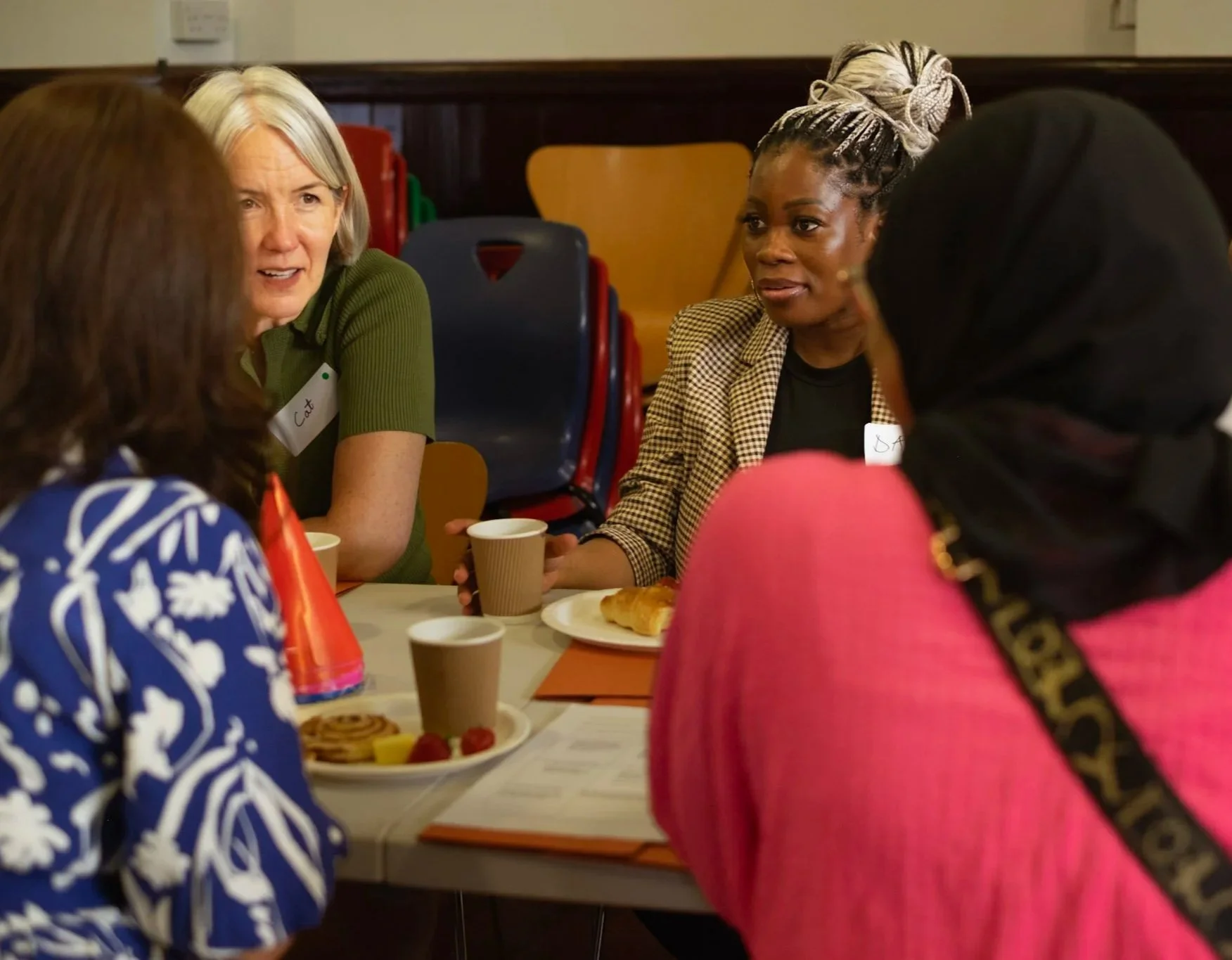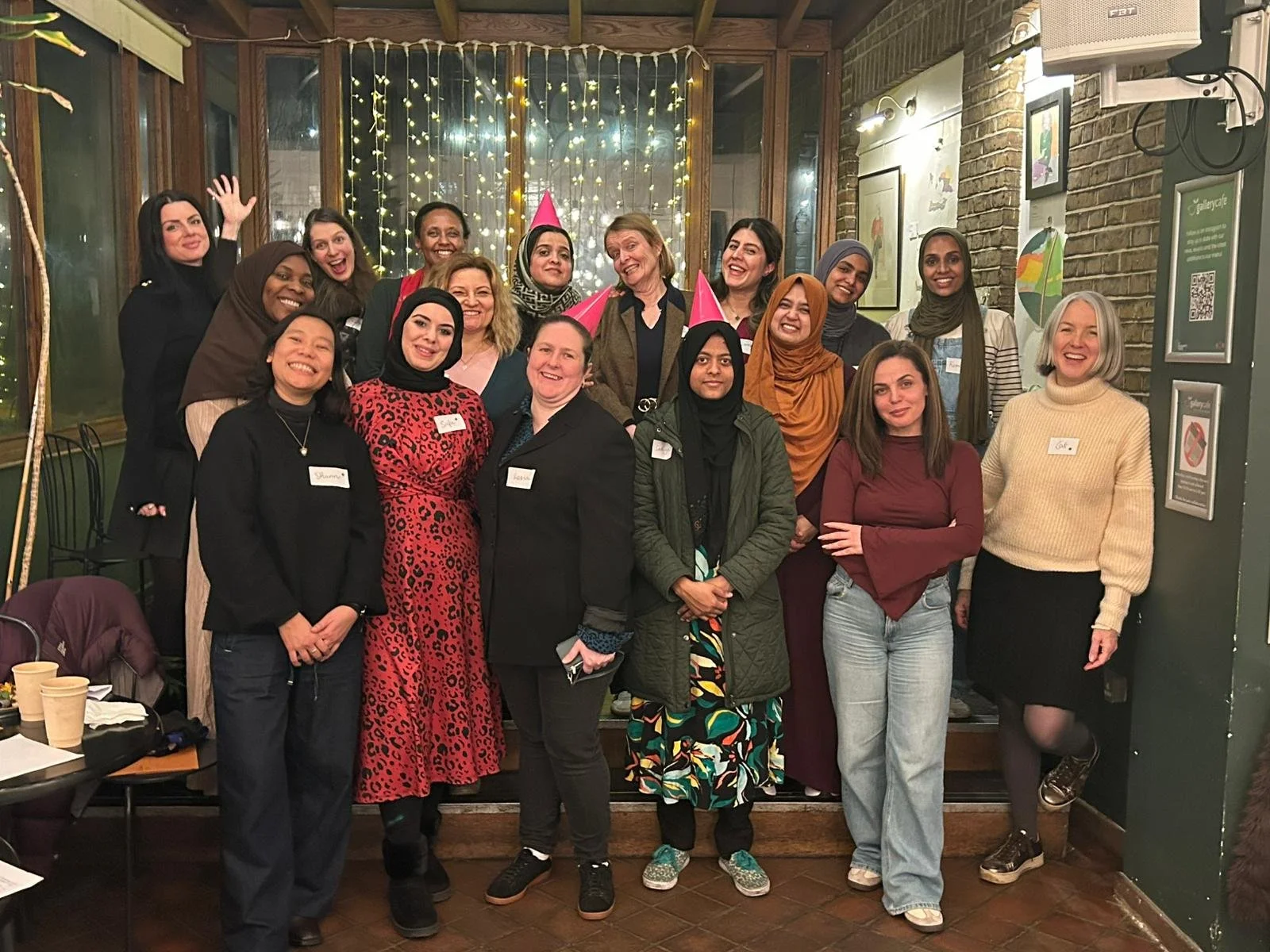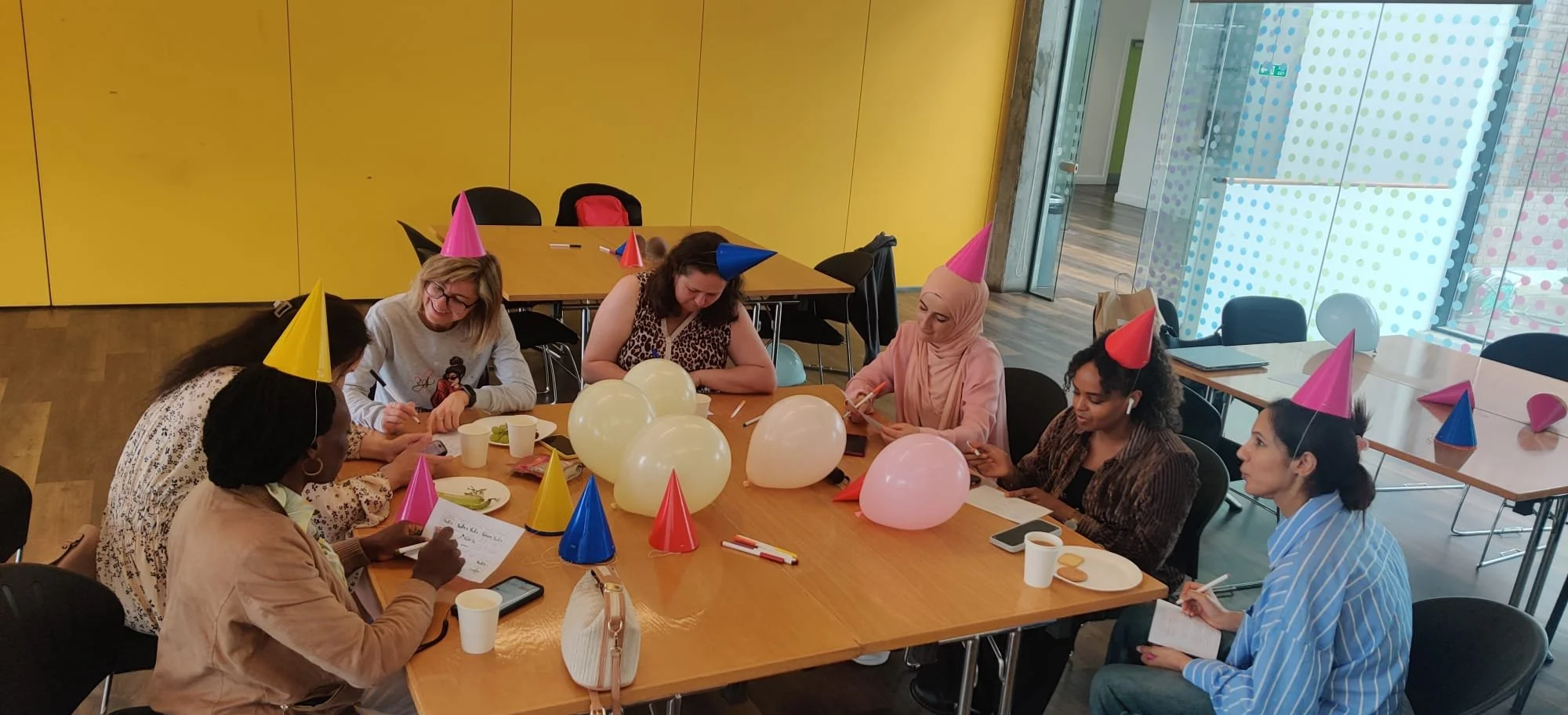Mentor Cat and mentee Oksana: a conversation on cultural expectations
Cat and Oksana are an alumni mentoring pair of the 14th Routes Mentoring Programme.
Oksana and Cat wrote a three-part blog series together, to reflect on the different components of their journey.
In this blog: how ideas and attitudes around gender and refugee status might shape how we build confidence, and work on our goals.
Oksana: I’ve never believed that women are weaker than men. Perhaps that’s something shaped by my background. In Ukrainian culture — and certainly in my own life — things often work a little differently.
Changing gender attitudes
Oksana: There’s an old Ukrainian saying: “A man is the head, but a woman is the neck — and the neck decides where the head turns.” A Ukrainian woman may allow her husband to feel like he’s the main decision-maker, but with love, patience, and quiet wisdom, she gently steers the decision in the direction she believes is right.
I once shared this cultural insight at a live storytelling event in London called “True Story London” — a challenge I took on to prove to myself that I could speak publicly in English. Some of my friends and family came to support me.
It meant so much that my mentor Cat came too. She made the time and effort to be there. I’m not sure what I wanted more: for her to understand me better through my cultural identity, or simply to be proud of me.
Cat: I’ve lived through a huge change in the UK society’s perception of women. Sexism was widespread when I was a teenager and I had a few upsetting experiences as I navigated working as a young female professional in a predominantly male field in the 90s. I then navigated working as a young female professional in the 80s and 90s. I founded my own business, which I sold in 2024. It’s amazing to see the progress the UK has made, but there is also still so far to go - we need far more women in senior positions and properly equal sharing of childcare responsibilities.
I didn’t know much about gender dynamics in Ukraine, but I had some prejudices. I really enjoyed learning from Oksana about the saying in Ukraine, and how women might use indirect ways to make sure their influence is felt in domestic contexts. That’s definitely a different approach to mine! It was also really powerful to see her speak in her second language about this - knowing that building confidence in her professional skills and English was one of her goals for mentoring.
Cat (alumni mentor) and fellow Mentoring Programme participants at the end of programme celebration event
From Oksana the refugee to Oksana the woman in London
Oksana: From our very first meeting, I realised my mentor Cat was British — born and raised in London, with a solid local education in law. She had built a successful career - first as an employee, and then as a business owner.
I found that really inspirational, but that success made me feel a bit afraid too. Yes, I had had my own career in Ukraine, but I came to London having to build everything from scratch. I was afraid that perhaps the gap between us was too wide.
Nonetheless, in our conversations, I never felt judged for my choices, even when they might have seemed unusual at first. I felt we were simply two women, two people, connecting as equals. With every conversation, I felt more empowered, more confident that I could reach my goals.
Now, I’m a woman who calls London home. I still have a feeling of home in Ukraine and hope to come back to a peaceful life in my country, but London became my home as well, mostly because of people I’ve met during the last three years.
Cat: When I met Oksana, she was creating a busy new life in London and had already built up a vast network. Most of her work involved helping others.
I was impressed and amazed that she’d already signed up to do a speech to a large room of strangers about her experiences of seeking safety. Delivering a speech like that, would be something I would dread! Seeing Oksana speak at the True Story Event, made me understand her character, courage and determination. I’ve learned so much about what it means to have to build success in a new country!
“Our conversations have also reinforced to me that being a refugee of course isn’t a character trait. Every person whose current status is a refugee has a completely unique history, strengths, weaknesses and potential. I can’t wait to see how Oksana’s life and career here will evolve!”




